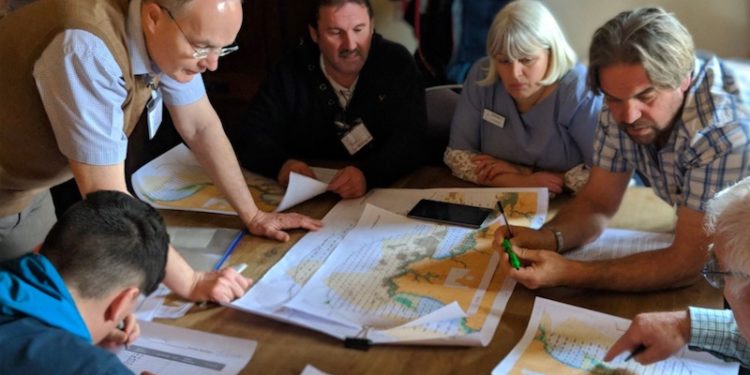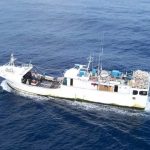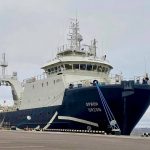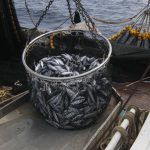Following on from the overwhelming success of Fishing into the Future’s first industry training workshop in 2017, the charity delivered its second training session aimed at inshore fishermen on the 6-8th March, at Dartington Hall in Devon: entitled ‘an Introduction to Sustainable Fishing.’
‘I think this training couldn’t have come at a more important time for fishermen as there’s about to be some really important decisions made in the industry,’ said Pete Williams, an inshore fisherman who runs a community catch box with his wife Chantelle in Emsworth near Chichester.
‘For the past three days fishermen, policy makers and scientists have actually been speaking the same language because we’ve had time to sit down and openly discuss our concerns and views and get answers to questions we’ve never had the opportunity to ask.’
The Introduction to Sustainable Fishing course brings together fishermen, scientists and resource managers in a neutral setting to de-mystify the theory and practice of fishery management. Interactive sessions and presentations led by experts in fisheries science and policy allow fishermen to engage proactively with the processes that govern their livelihoods helping them feel more comfortable with navigating data.
‘From chatting to the scientists and listening to their presentations I started to see where there are gaps in fisheries data. I think if the industry could come around to collaborating more with the scientists we could work together to fill those data gaps, this has got to be the future for fishermen,’ said David Stevens, skipper of the Newlyn trawler Crystal Sea.
Open discussions over the three-day period also allowed scientists and policy makers to become more familiar with the inner workings of the fishing community, helping them see where they can add value, too.
‘One thing I’ve taken away from this course is the need to ensure we’re telling the true story about the businesses that rely on small fishing vessels,’ commented Hazel Curtis, Chief Economic Officer at Seafish.
‘I can see there are all sorts of ways their data is not captured accurately. I’ve challenged myself to find new ways to collect data more effectively so the government can have a better understanding of those working in the small-scale fishing sector, so they can make more informed policy decisions.’
Jim Masters, Executive Director of Fishing into the Future, explained that the magic ingredient in this type of training is bringing people together in a neutral setting for a good period of time.
‘All those who attend can relax and explore issues away from the pressures of the industry and spend time finding solutions that work…Times are changing in UK fisheries,’ he said.
‘Whatever the outcome of Brexit, our industry will benefit from drawing on the commitment and know-how of fishermen who have the tools, language and motivation to fully engage with sustainable fisheries science and management. We broke new ground at this event: it was amazing to see fishermen rub shoulders with top-level representatives from Cefas, Defra, Academia, IFCA, the supply chain, Statutory Bodies, Seafish and more. We use a proven model from the United States to help us deliver this work: the Marine Resource Education Programme. This has a fantastic track record and together we are building communities of fishermen who are ready to take an active part in the fisheries of the future.’









